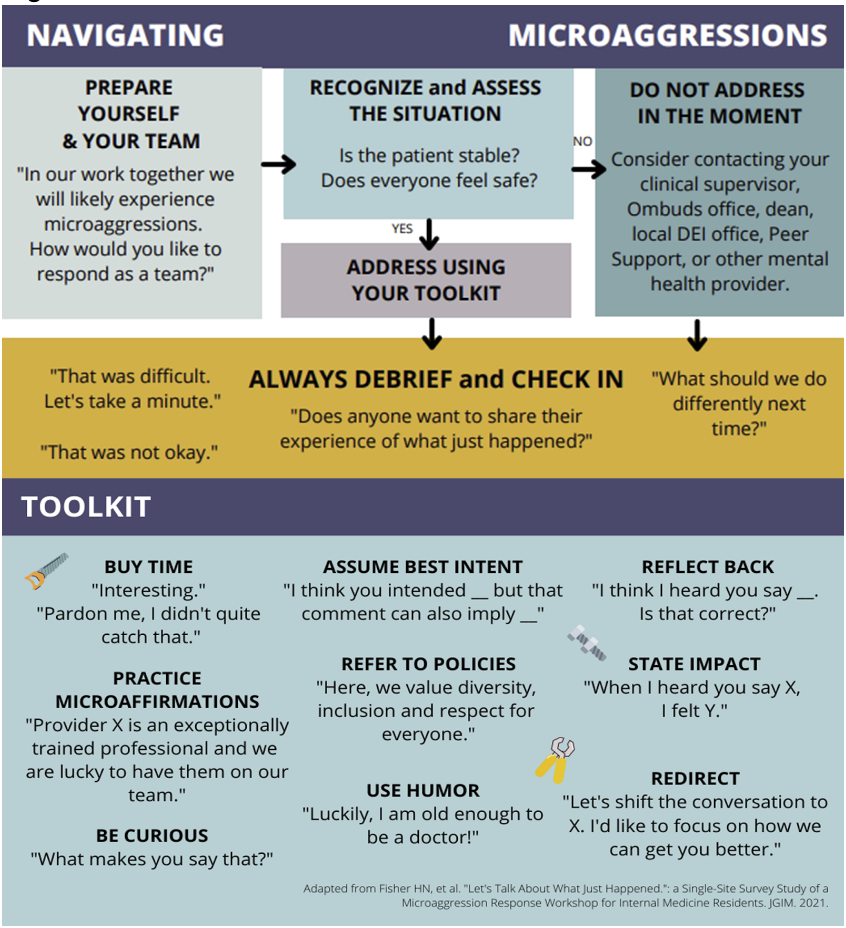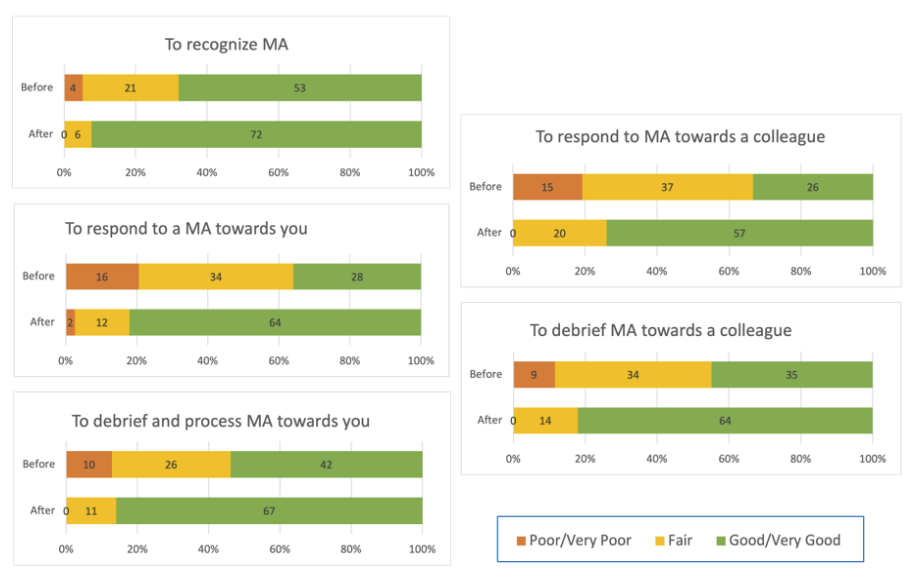Background: Microaggressions (MA) are everyday verbal, nonverbal and environmental slights, snubs or insults whether intentional or unintentional, which communicate hostile messages to marginalized people. Microaggressions have been increasingly recognized as harmful to learners in clinical settings, creating a stressful work environment that unfairly erodes learners’ well-being and ability to succeed.
Purpose: Our purpose was to provide guidance for safely navigating patient-initiated microaggressions to medical students, and to measure the effect of our session on the self-reported ability of students to recognize, respond to and debrief patient-initiated microaggressions. Our overarching goal was to improve the clinical learning environment for the next generation of trainees.
Description: As part of their core medicine clerkship didactics, third year medical students participated in a 60-minute session on microaggressions which included a brief review of microaggressions and their impact, an introduction of an algorithm-based approach and communication toolkit for use during and after a microaggression (Figure 1), and role play of real-life cases with practice responses for all participants. During the academic year 2021-2022, 79 third year clerkship students participated in the training session and completed our survey. Students were surveyed after the session, reflecting on their ability to recognize, respond to and debrief microaggressions before and after the workshop. Students rated their abilities on a five-point scale of “very poor” to “very good” in addition to leaving written feedback which was assessed to find general themes. Results of students self-assessment are seen in figure 2. Overall, students’ ability to recognize, respond to, and debrief microaggressions improved after the educational session. Analysis of the written feedback showed students were most comfortable with indirect action such as curiosity, redirection, buying time, and using humor. Students noted that the helpful aspect of the seminar was having real cases to work with, acting out responses, and the toolkit.
Conclusions: Focused training sessions on microaggressions correlate with an increase in students’ self-reported confidence in recognizing, responding to and debriefing microaggressions towards themselves and colleagues. Most students appreciated the specific strategies offered and favored indirect approaches to their response. Further work is needed to include approaches to MA when coming from a supervisor and to assess the longitudinal impact of such training on learners and the clinical environment.


